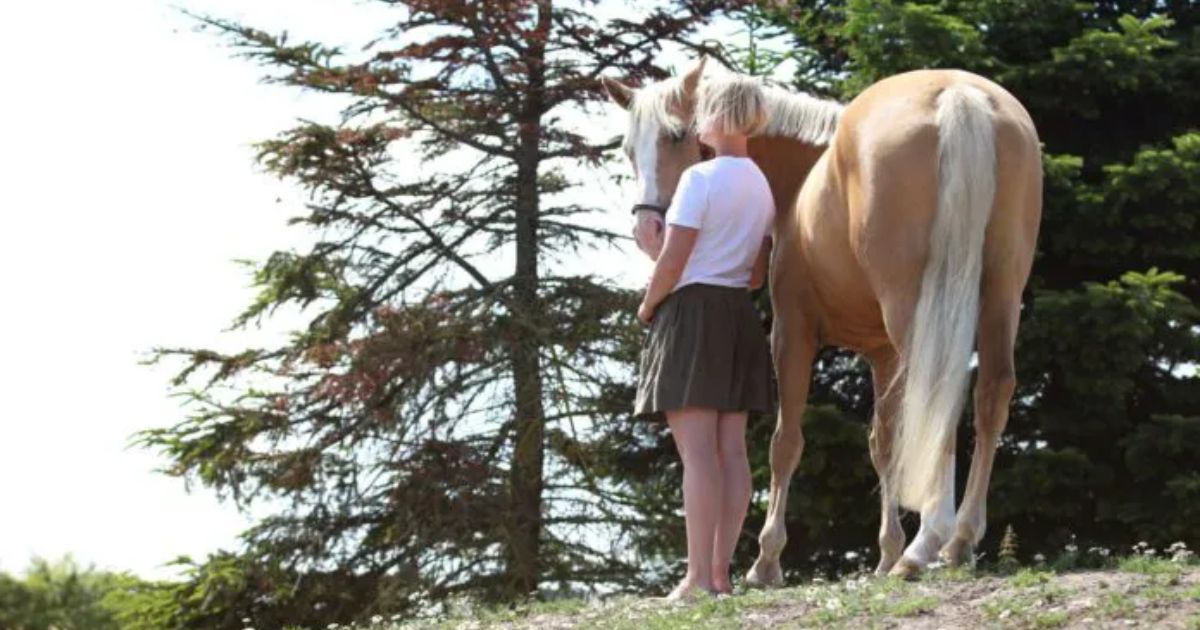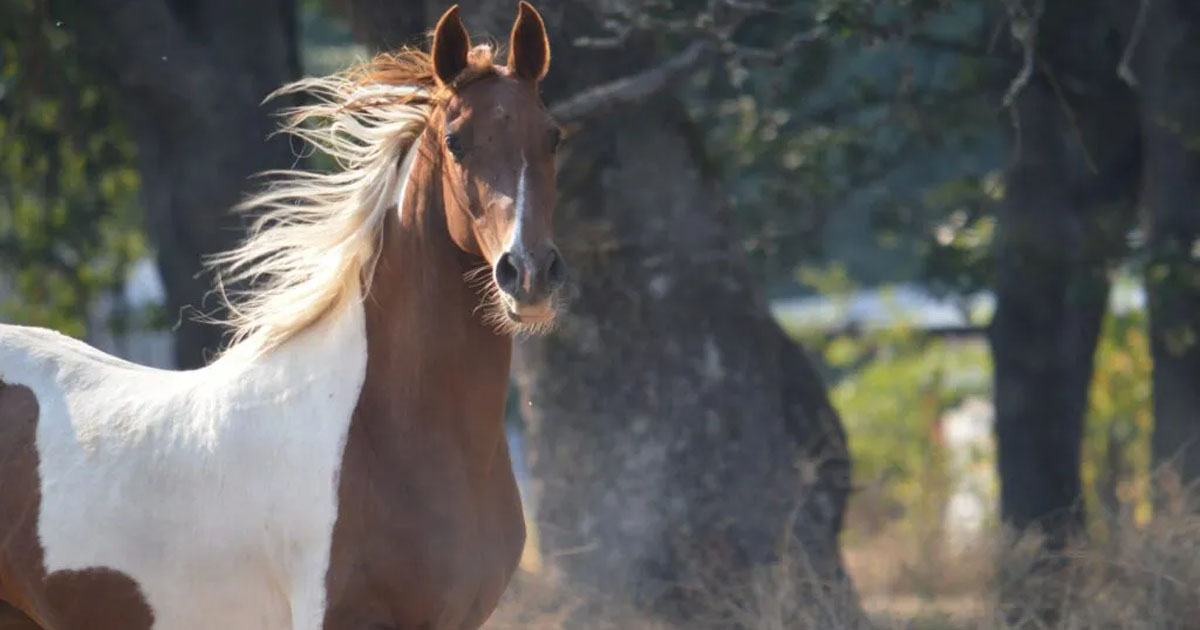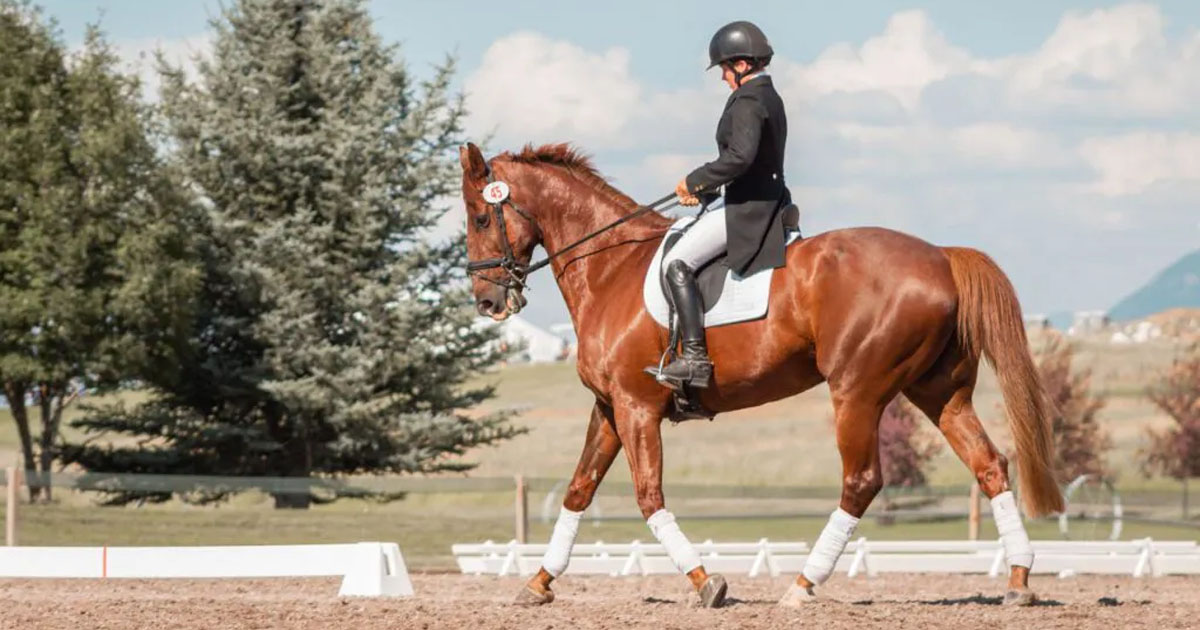Menu

Have you experienced a behavioral change in your horse? Or is your horse very stressed? Then it may be due to a problem in the Nervus Vagus, which is the longest nerve in both your and your horse's body.
The physical function of the Nervus Vagus is to supply virtually all the internal organs so they can function. It is the only nerve that connects the brain with the stomach, lungs, heart, spleen, intestines, liver, and kidneys. A blockage in the nerve can mean that digestion is not optimal, the heart beats too fast, breathing is superficial, and so on. Therefore, it is an extremely significant nerve.
Read also: Horses love to eat salt, even though they don't need it
The nerve activates the parasympathetic. It is part of the autonomic nervous system, where the body is at rest, can repair itself, and recuperate. This part of the nervous system is only activated when the body, as said, is calm, safe, secure, and comfortable.

If the body is not in this state, then the sympathetic starts, which is responsible for flight, freeze, or fight states. This is the survival mechanism, so your horse does not get eaten by dangerous predators. Our horses can switch between the sympathetic and parasympathetic from one second to another if the horse's nervous system functions optimally. This is because the nervous system is flexible.
However, I experience both in humans and horses that the nervous system can be locked in sympathetic, and thus the body is constantly on alert. The horse is therefore very awake, sees ghosts, uneasy and up for danger. If your horse is in a sympathetic state much of the time, it also means that the Nervus Vagus cannot be activated properly. The nerve can no longer ensure that your horse's digestion is good, that the heart beats as it should, or that the liver can cleanse the body.
Read also: Boarder – Which type are you?
Therefore, you may be dealing with a horse with stomach and intestinal problems and a horse that does not get waste products out of the body. If the waste products do not come out of the body, then the body is more susceptible to diseases and the muscles can easily acidify. This is, of course, wearing on the body.
The reasons why your horse cannot find peace and continues to be very stressed can be due to several things.
In this article, however, I focus on the Nervus Vagus. This fascinating nerve originates from your horse's brainstem. The brainstem is located in the neck, right up behind the ears. It is therefore an area that can easily be affected from the outside.

It can happen when the horse pulls back in the halter, when it is tied in the stable corridor. This creates a lot of pressure on the horse's upper part of the neck, pressing the brainstem downwards, and thereby putting pressure on many nerves in this area including the Nervus Vagus.
No nerves like pressure and stress. It irritates the nerves because the nerves are not particularly elastic like a muscle, connective tissue, and blood vessels are. Imagine when you pull on a rope. It is not very elastic, it can perhaps stretch a little bit, but if you take an elastic band, then it is clear that this can do much more. The same is true for the nerves in the body.No nerves like pressure and stress. It irritates the nerves because the nerves are not particularly elastic like a muscle, connective tissue, and blood vessels are. Imagine when you pull on a rope. It is not very elastic, it can perhaps stretch a little bit, but if you take an elastic band, then it is clear that this can do much more. The same is true for the nerves in the body.
Furthermore, unfortunately, I also often see horses hit their heads e.g., in the trailer, in the box, low ceiling, etc. It is the same pressure and stress that comes on the brainstem and thereby the Nervus Vagus.
The Nervus Vagus is first protected when it goes under your horse's shoulder blade and moves from there into the body's organs. So from the top of the neck and down along the horse's neck, the nerve is susceptible to influence from the surroundings. Therefore, it can also be kicks and bites on the neck, but likewise riding, where the horse is asked to assume an unnatural form in the neck. This form of riding creates a massive pull on the nerves, and they absolutely do not like that.

Irritation in the nerve tissue can lead to inflammation in the nerve. It is a kind of inflammatory condition and thus the nerve cannot function optimally. The activation of the parasympathetic is impeded, and therefore it is more likely that the horse is in sympathetic, as it can no longer return to calm. The nervous system no longer has this balance between sympathetic and parasympathetic.
Read also: Maintaining motivation in winter darkness
Other causes may be due to viruses. Viruses that go in and cause inflammation in the nerve tissue, resulting in the same spiral being set in motion. It also creates inflammation in the nerve tissue, and then the nervous system is no longer flexible.
Furthermore, prolonged use of painkillers and antibiotics can affect the nerve tissue, but here we are talking over a longer period. Inflammation in the nerve can also occur if the horse is exposed to chemicals, for example from the care products we use or various medications. Unless care products that do not harm the body are used. Moreover, a poor stable environment can create inflammation in the body and thereby also the horse's nervous system. It is not new to us that mold is unhealthy and not a place we ourselves would sleep, and the horse's body is no different than ours.
Do you suspect your horse of having developed inflammation of the nerve tissue, affecting its behavior and physical body?
Then it is a good idea to consult a veterinarian or therapist who works with these issues. If your horse's inflammation is due to an infection, then there are many methods to "cleanse" the horse's body.
Keep in mind that the above is described from the horse's body, but the same applies completely to our own body.
Kathrine Dybdahl runs the company Dybdahl Body & Mind. Kathrine is a trained physiotherapist and horse physiotherapist. Subsequently, she combined cranio-sacral therapy and a series of other educations and courses to be able to help both animals and humans get rid of everything that we cannot always see with the naked eye.
Sources:
Accessing the healing power of the vagus nerve – Rosenberg, Stanley.
Nervus Vagus: Learn How to Reduce Inflammation. Prevent chronic illness and overcome anxiety, stress and depression. Activating and stimulating the most important nerve in the body – Supran, Stephen
Waking the Tiger: Healing Trauma – A. Levine, Peter.